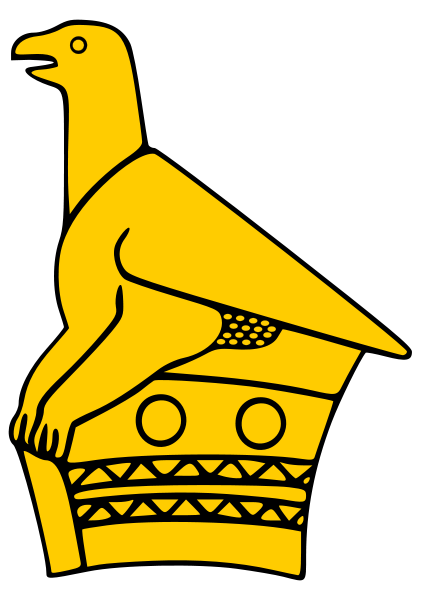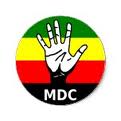The Kia
Linguistics
In 1872 two men began work on a lexicon of words of Asian origin used by the British in India. Since its publication the 1,000-page dictionary has never been out of print and a new edition is due out next year. What accounts for its enduring appeal?
Hobson-Jobson is the dictionary's short and mysterious title.
The subtitle reveals more: "A glossary of colloquial Anglo-Indian words and phrases, and of kindred terms etymological, historical, geographical and discursive. By Colonel Henry Yule and AC Burnell."
But even the word "discursive" doesn't quite prepare the reader for what is to come.
"It's a madly unruly and idiosyncratic work," says poet Daljit Nagra.
"Not so much an orderly dictionary as a passionate memoir of colonial India. Rather like an eccentric Englishman in glossary form."
Take the entry for the Indian word dam. The dictionary defines it as: "Originally an actual copper coin. Damri is a common enough expression for the infinitesimal in coin, and one has often heard a Briton in India say: 'No, I won't give a dumree!' with but a vague notion what a damri meant."
That is the etymology of dam. But Yule and Burnell have more to say.
"And this leads to the suggestion that a like expression, often heard from coarse talkers in England as well as in India, originated in the latter country, and that whatever profanity there may be in the animus, there is none in the etymology, when such an one blurts out 'I don't care a dam!' in other words, 'I don't care a brass farthing!'"
There is a huge delight in language that's evident throughout the dictionary, says Dr Kate Teltscher, reader in English Literature at Roehampton University, who is preparing the new Oxford World Classics edition.
"It's a hugely ambitious attempt to trace linguistic influence… it's all about the distance that words travel," she says. "It's also about looking at words in their context, and seeing how they describe a lost way of life."
When the book was published, it was already a source of nostalgia for the passing of the East India Company era as India came under British rule.
"There was a market for it in India, amongst the British serving in India. One review recommended it as an ideal 'after-dinner reading in camp'," says Teltscher.
"It does include a lot of administrative terms - things that the British needed to know. But it was also clearly meant for diversion and entertainment, both for the British serving in India and the British when they had returned home."
Anglo-Indian food features prominently. For example, it defines kedgeree (or kitchery) thus:
"A mess of rice, cooked with butter and dal and flavoured with a little spice, shred onion, and the like. It's a common dish all over India, and often served at Anglo-Indian breakfast tables. In England we find the word is often applied to a mess of re-cooked fish, served for breakfast, but this is inaccurate. Fish is frequently eaten with kedgeree, but is no part of it."
Chilly, we learn, is "the popular Anglo-Indian name of the pod of red pepper".
"There is little doubt that the name was taken from Chile in South America," the compilers Yule and Burnell say, "whence the plant was carried to the Indian archipelago and thence to India."
"Who doesn't know what chilli means now?" asks Daljit Nagra.
"But here it's been recorded probably for first time in a Western dictionary and I love the idea of witnessing the birth of that word."
For writers such as Nagra, Hobson-Jobson has often been a source of inspiration.
Here is how Hobson-Jobson defines naukar-chaukar. It means "the servants" but the authors continue:
"One of those jingling double-barrelled phrases in which Orientals delight even more than Englishmen... As regards Englishmen, compare hugger-mugger, hurdy-gurdy, tip-top, higgledy-piggledy, hocus-pocus, tit-for-tat, topsy-turvy... harum-scarum, roly-poly, rump and stump, slip-slop…"
"I love these rhyming words in Hobson-Jobson," says Nagra.
"They're such a familiar feature of my mother tongue and I can see how it's inspired so many writers, most famously Salman Rushdie whose novel Midnight's Children is richly sprinkled with phrases such as writing-shiting, pudding-shudding."
The word Hobson-Jobson itself is one of these.
"My friend Major John Trotter tells me that he has repeatedly heard this phrase used by British soldiers in the Punjab. It is in fact an Anglo-Saxon version of the wailings of the Mahommedans as they beat their breasts in the procession of the Moharram - 'Ya Hasan! Ya Hosain!'"
Another author who has drawn inspiration from the dictionary is Tom Stoppard. In his play Indian Ink, two characters compete to use as many Hobson-Jobson words as possible:
Flora: "While having tiffin on the veranda of my bungalow I spilled kedgeree on my dungarees and had to go to the gymkhana in my pyjamas looking like a coolie."
Nirad: "I was buying chutney in the bazaar when a thug who had escaped from the chokey ran amok and killed a box-wallah for his loot, creating a hullabaloo and landing himself in the mulligatawny."
Stoppard says he deliberately chose words that the English-speaking audience would be familiar with. One of the surprises is that there are so many of these.
"By exploring the words that are in Hobson-Jobson we start to realise how many words that we use every day, we don't even think of as particularly being of Indian origin actually are," says Teltscher.
"So words like shampoo, words like pyjamas, words like bangle. We tend to think of Empire in terms of domination and control, in terms of the way power was used and abused. But we can also think of it in more intimate ways and I think Hobson-Jobson allows us to do that."
Nagra says this is exactly what he loves about Hobson-Jobson.
"That it now feels like a benign project of Victorian multiculturalism, where words from Hindi, Malay, Arabic and even Chinese can cohabit and intermingle with English words - words that have themselves been remade by rubbing alongside their new neighbours."
In his introduction to the book, Yule writes that words of Indian origin have been "insinuating themselves into English ever since the end of the reign of Elizabeth and the beginning of that of King James".
Terms such as calico, chintz and gingham had already by then "effected a lodgement in English warehouses and shops, and were lying in wait for entrance into English literature".
Eccentric, entertaining, full of curious detail, the dictionary is nonetheless very much of its time. Teltscher notes "an almost innate sense of British cultural superiority" running through the book.
Novelist Amitav Ghosh, meanwhile, is quite sure he would not wish to meet Yule and Burnell.
"No. I don't think I would at all," he says. "I enjoy the book but it's absolutely ridden with ideas of racial separation. I would never be a guest at their dinner party."
Arthur Burnell, a scholar of South Indian languages, died before the project was completed.
Colonel Henry Yule, a retired Bengal engineer, who became president of the Royal Asiatic Society, eventually drew his 14-year labour to a close in 1886, not because it was finished, but as he put it, "ars longa, vita brevis". Art is long, life is short.
Hobson-Jobson-isms
- Kedgeree: A dish of seasoned rice. Hobson-Jobson defines it as "a mess of rice, cooked with butter and dal and flavoured with a little spice and shred onion."
- Shampoo: To "knead and press the muscles with the view of relieving fatigue".
- Pyjamas: A "pair of loose drawers or trousers, tied round the waist".
- Gymkhana: "It is applied to a place of public resort at a station, where the needful facilities for athletics and games of sorts are provided."
- Veranda: "An open pillared gallery round a house."
Found in BBC News Magazine for 12 July 2012 - article by Mukti Jain Campion, writer and radio producer



 South Devon Sound Radio
South Devon Sound Radio Museum of hp Calculators
Museum of hp Calculators Apollo Flight Journal
Apollo Flight Journal Apollo Lunar Surface Journal
Apollo Lunar Surface Journal Cloudy Nights Classic Telescopes
Cloudy Nights Classic Telescopes martini in the morning - The Lounge Sound
martini in the morning - The Lounge Sound The Savanna - Saffer Shops in London
The Savanna - Saffer Shops in London Linux Mint
Linux Mint
 Movement for Democratic Change
Movement for Democratic Change